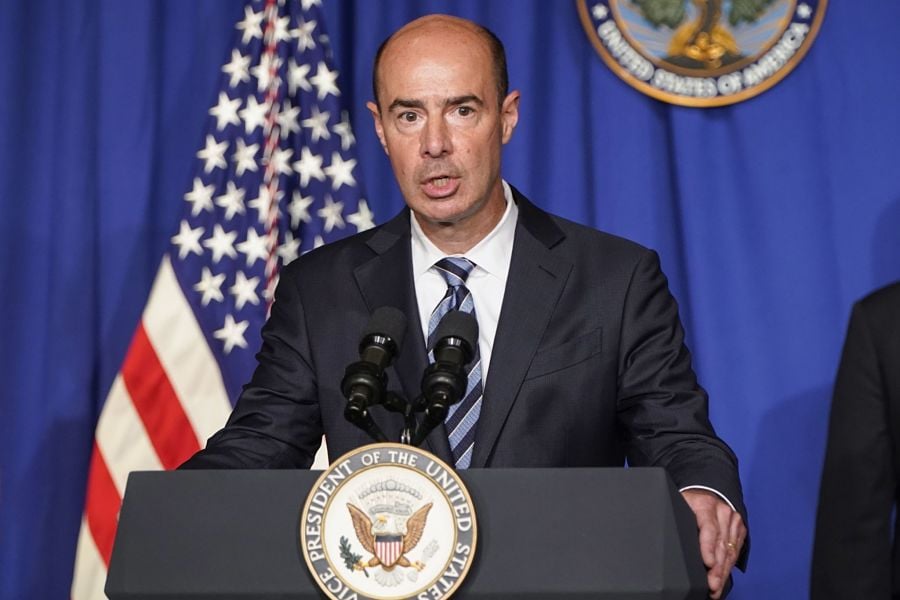

The world’s largest asset managers are speaking out against a Trump administration plan that would make it more difficult for them to incorporate environmental, social and governance factors when making investment decisions, a move that could limit green investing in 401(k) plans.
Fidelity Investments wrote in an 11-page letter to the U.S. Department of Labor that the proposal’s assumption that ESG investment strategies sacrifice returns, increase risks and promote goals unrelated to financial performance isn’t “well grounded or supported by much of the emerging data.” BlackRock Inc. said the recommendation is “overly prescriptive and burdensome.” State Street Global Advisors, Putnam Investments and Legal & General Investment Management are among numerous other firms that also oppose the plan.
The outcry follows the Labor Department’s decision in June to propose the new rule, which would change the Employee Retirement Income Security Act of 1974 (ERISA) to require those overseeing pension and 401(k) plans to always put economic interests ahead of so-called non-pecuniary goals.
The agency specifically focused on ESG investing. The announcement followed a call from the White House to examine retirement plans’ investments in the energy sector. The fossil fuel industry is a major supporter of President Donald Trump, who has repeatedly expressed skepticism about efforts to fight climate change, calling widely accepted science about global warming and its intensifying impact on the planet a “hoax.”
“Pressure from trade associations and the fossil-fuel industry is the most likely reason for what the Labor Department is proposing,” said Bryan McGannon, director of policy and programs at US SIF, a group that supports the sustainable investment business. “It certainly didn’t come from the financial-services industry.”
The Labor Department, led by Secretary Eugene Scalia, probably will decide by the end of the year whether to move ahead with the new regulation, McGannon said. The Nov. 3 presidential election won’t change how the agency “writes the rule as it’s clear what outcome they want,” he said. A Labor department spokeswoman wasn’t immediately available for comment.
In April 2019, Trump issued an executive order directing the Labor Department to look at whether there are “discernible trends” in how retirement plans subject to ERISA invest in the energy sector. Money managers have been reducing their stakes in fossil-fuel companies because of growing concern about the climate crisis.
A Standard & Poor’s index that tracks the performance of oil and gas exploration and production companies has dropped 44% this year, and energy stocks now account for 2.3% of the benchmark S&P 500 Index, down from 16% as recently as 12 years ago.
Managers of ESG funds typically avoid polluters such as fossil-fuel companies, and as a result, they’ve grown in popularity among many investors. An estimated $24.1 billion flowed into ESG-focused funds this year as of July 31, which already surpasses the calendar-year record of $21.4 billion set in 2019, according to Jon Hale, director of ESG research for the Americas at Morningstar Inc.
“This proposed regulation isn’t about something that’s wrong with how ESG is used by fiduciaries,” Hale said. “It’s about promoting investment in energy in ERISA plans and reflects the current administration’s position on fossil fuels and climate.”
The Labor Department gave fund officials and investors 30 days to respond to its proposed ERISA rule change, rather than the more typical 60 to 90 days. In that period, 8,737 comments were made public, and an overwhelming 95% of them opposed the agency’s proposal, according to a review by a group that included Morningstar.
The complaints focused on six main points, including that the proposed rule change is based on a flawed and unsupported assumption that ESG funds give up financial returns in favor of “non-pecuniary” rewards, according to Morningstar.

The leadership changes coming in June, which also include wealth management and digital unit heads, come as the firm pushes to offer more comprehensive services.

Strategist sees relatively little risk of the university losing its tax-exempt status, which could pose opportunity for investors with a "longer time horizon."

As the next generation of investors take their turn, advisors have to strike a fine balance between embracing new technology and building human connections.

IFG works with 550 producing advisors and generates about $325 million in annual revenue, said Dave Fischer, the company's co-founder and chief marketing officer.

Five new RIAs are joining the industry coalition promoting firm-level impact across workforce, client, community and environmental goals.
RIAs face rising regulatory pressure in 2025. Forward-looking firms are responding with embedded technology, not more paperwork.
As inheritances are set to reshape client portfolios and next-gen heirs demand digital-first experiences, firms are retooling their wealth tech stacks and succession models in real time.
